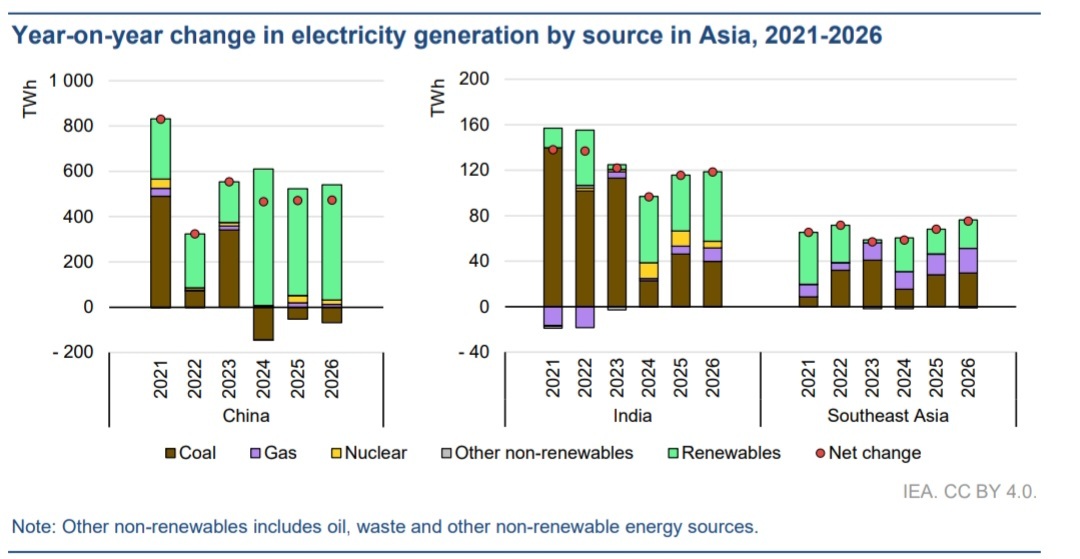
The new IEA Electricity Report for 2024 shows what I’ve been saying for ages. The fact that China’s building more coal power plants is not an indication that they’re increasing coal consumption - quite the opposite. If China were using coal for base load, they wouldn’t need so much more excess capacity. China is switching to using coal on-demand to deal with demand spikes.
This is such a good sign for the environment and I expect that things can only improve from here (especially since, imo, the IEA is underestimating China’s renewables growth 2025+).
Coal power can’t really be used for on-demand scenarios, as coal fired power plants have massive startup costs and also time. Compared to a gas-turbine that can do a cold boot up to maximum production in 15 minutes. Coal needs about 4-5 hours to come to full power and that is with the best expensive technology we have not necessarily technology that is in use. Also coal plants take about 2 hours to shutdown and about 20 hours to be ready to be fired again. It’s just a limitation that we can’t overcome from complications due to coal being a solid fuel.
So whatever coal China has it must be using for baseload, they must have more alternatives if their coal fired capacity is decreasing.
EDIT: adding more context, so I have been hearing this coal as peak load instrument for a while now, so I decided to dig deeper on who is claiming this and why? So there are two claims in this space out there 1st being that for larger plants that can operate at sub 20% capacity can scale between sub20% to 100% in minutes making them useful for peak load, and that is just stupid argument as whatever minimum they are running it is still baseload.
Other argument is actual redisgn of plants that allow for quick cycling, but technology is new and they can cycle even 4x in a day, but they operate at relatively less efficiency and also since they don’t ever go cold they start plants semi hot, they can’t clean the boiler with forced draft, leading to increased maintenance cost during full cleanup shutdown significantly and also they deal with thermal stress a lot more leading to increased cost of wear and tear. Seems like only CGS has been able to operate using this model and their gen capacity is only 480mW so seems like a proof of concept idea than actual possi ility of turning coal into peak load.
But at least it looks possible with some research, contrary to my previous opinion that it’s not possible at all, but seems to be still years before it can reach baseload efficiency and last thing we want to do is run coal at worse efficiency.
China’s peaking isn’t on a minute-to-minute scale, but on a day-to-day scale. China is worried about two scenarios:
-
the US deciding to enter a hot war with China
-
a heat wave or cold snap (like they’ve been getting recently) that forces rolling blackouts
And has one key consideration for it:
- China lacks substantial domestic O&G reserves.
These are critical geopolitical concerns that China needs to address.
Plus, Chinese coal plants are literally state-of-the-art. Whereas the US has one ultra-supercritical plant, China has at least a hundred. China has excess construction capacity, so demolishing a 30-yo plant for a new one is entirely practical. We also know that China’s coal power plant capacity factors have been dropping like a rock, so SOMETHING is happening that’s reducing their utilization significantly.
I mean i get your argument, but super-critical plants can only serve baseload, they need 48 hours to prime and can generally not operate below 50% capacity, they do yield very high efficiency though.
But I’m not sure where this discussion is going.
-


